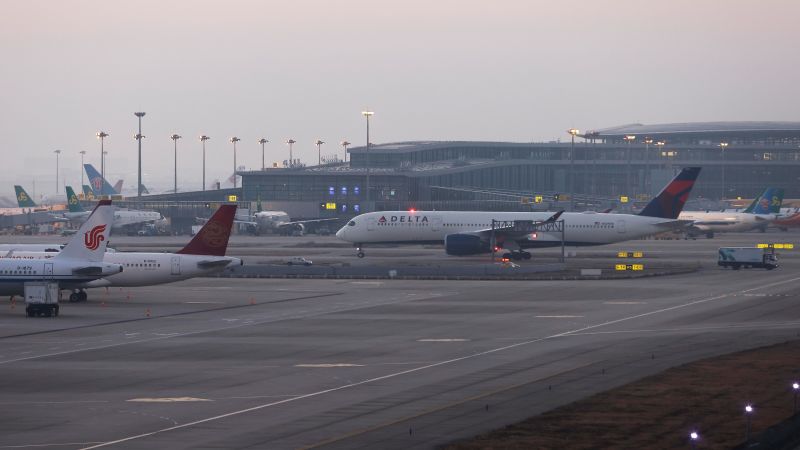Western airlines were initially optimistic about returning to the Chinese market after the country reopened its borders following Covid restrictions. However, a year later, many Western carriers are cutting back on flights due to lackluster demand stemming from China’s struggling economy. Additionally, the effects of Moscow’s war on Ukraine have led to higher operational costs and longer flight times for Western airlines, making them less competitive compared to their Chinese counterparts. Geopolitical tensions have also hindered the resumption of flights between China and the United States and other Western allies, as most Western tourists are opting to travel elsewhere.
The preference for Chinese-speaking crew among domestic travelers in China has further bolstered Chinese airlines, driving up their demand compared to foreign carriers. While Chinese airlines quickly recovered their international capacity following the pandemic, foreign airlines have not been able to do the same, resulting in cuts to flight schedules. Delta Air Lines, for example, has postponed plans to resume its Los Angeles-Shanghai route due to slow recovery of travel demand. British Airways and Virgin Atlantic have also suspended routes to China, citing operational costs and flight time increases as reasons for their decisions.
The impact of Russia’s invasion of Ukraine has benefited Chinese carriers, as they now have more efficient flight routes to Europe and North America. In comparison, airlines from other countries have had to circumvent Russian airspace, resulting in longer flight times and increased costs. This disadvantage has led foreign airlines such as Virgin Atlantic to pull out of certain routes due to the added cost and time it takes to fly around Russia. The detours have put foreign airlines at a disadvantage, as passengers typically prefer shorter flight times.
Bilateral agreements between the US and China have also affected flight routes between the two countries, with carefully negotiated restrictions in place. While flights from North America to China do not usually fly over Russia, the detours still impact certain routes. The strained relations between the US and China have further complicated the aviation industry, with implications that cannot be ignored. The two countries have clashed over various issues, affecting the number of flights allowed per week between the two countries.
The aviation industry is not only driven by business factors but also influenced by government interests, especially in the case of China. Beijing’s efforts to encourage Chinese citizens to fly with domestic carriers have led to an increase in flight frequencies for Chinese airlines operating in the US market. While US airlines delay their plans to resume China services, Chinese carriers have taken advantage of the situation by maximizing their allowed flight frequencies. It is clear that geopolitical tensions and economic factors are shaping the future of aviation between China and Western countries.


